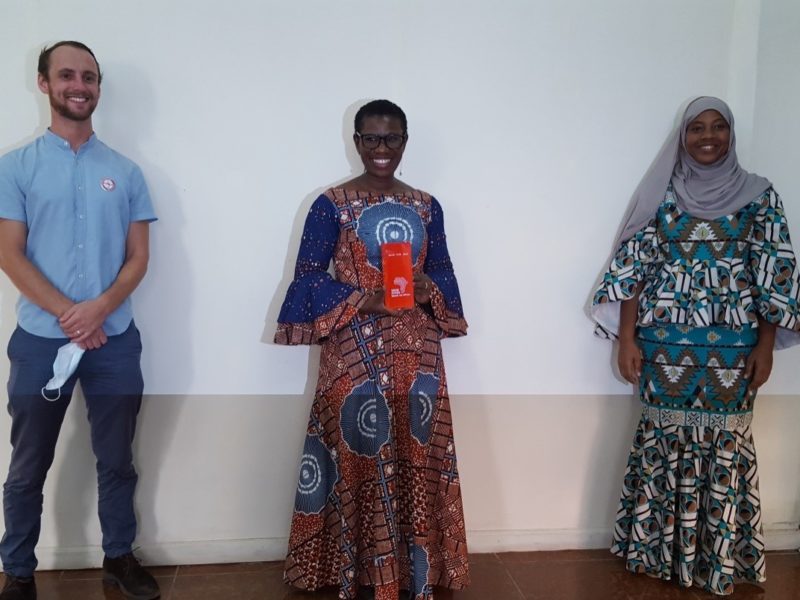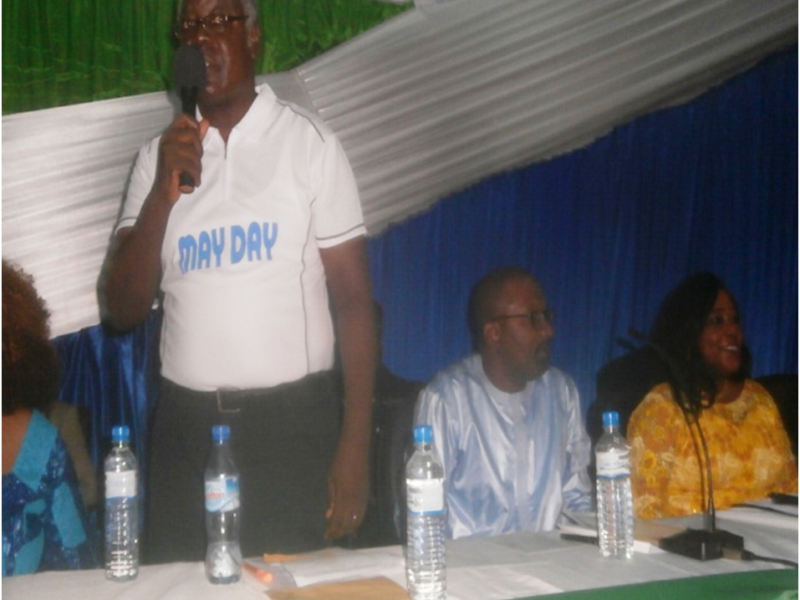Sierra Leone’s Envoy to China highlights China’s role in Africa’s sustainable development
Sierra Leone’s Envoy to the People’s Republic of China, Abubakarr Multi-Kamara has spoken, that China is now a major player alongside other traditional bilateral and multilateral donors in providing financial and technical assistance to Africa for its (Africa) sustainable development and future prosperity. He spoke in Beijing, China, 1st February on behalf of his colleague MRU Ambassadors, whilst opening a one day workshop on “Re-Thinking Development Assistance In A Changing Global Order: China’s Growing Presence In Africa”. The workshop was being organized by Ambassadors of Sierra Leone, Guinea and Liberia accredited to China in collaboration with the Mano River Union Secretariat in Sierra Leone and Peking and Warwick Universities in China and UK.
The workshop was an informal brainstorming session, aimed at ensuring a policy-oriented trilateral engagement to collectively analyze and elaborate on optimizing mutual benefits from Sino-Africa relation with particular focus on Forum On China-Africa Cooperation (FOCAC).It was also a way of presenting the “ Makona River Free Zone Development Initiative” which is a joint sub-regional initiative of the three countries of Sierra Leone, Guinea and Liberia – as a case study in terms of exploring feasible ways to move the Agenda within the broader framework of China-Africa development cooperation and showcasing the Mano River Union as a good example of sub-regional integration and cooperation that can potentially benefit from the support of an external partner, the PRC, amongst other objectives.
The growing presence of China in Africa, according to Ambassador Multi-Kamara is a practical manifestation of the doctrine of South-South Cooperation and that “China is a major economic power in the world today, with its growing economy imposing high demand for natural resources; its production and manufacturing power producing abundant consumer and industrial goods to satisfy the various needs of African countries” He said, there is an opportunity for increased economic cooperation between African countries and enterprises on one hand, “and the Chinese governments and enterprises on the other…” On workshop opportunity, the Envoy said, it was expected to provide an opportunity to reflect on this new international development cooperation and implications for the various actors and stakeholders, and that by way of contribution to the conversation, both him and the two Ambassadors for Liberia and Guinea considered it an opportunity to jointly conceive ideas for a Makona Free Zone Development Project, composed of cross-border initiative.
Guinea’s Ambassador to China, Dr Mamadi Diare in his statement called for the need to improve on the philosophy on ‘Win Win’ by introducing the concept of ‘Shared Growth’ that “requires a more humanist, more economical, more practical, more pragmatic…”approach. He also elaborated on the need for relationship of action to strengthen the China-Africa couple, enhancing and expanding the philosophy of ‘win-win’. The vast of the African market, he said is an asset to the world. Statements were also made by the UN Resident Coordinator and the Ambassador of Liberia to China, amongst others.
Professor Franklyn Lisk from the Centre for the Study of Globalization and Regionalization (CSGR), Warwick University, in his presentation on “China’s Engagement and Aid Effectiveness in Africa, including Trade, Investment and Special Economic Zones” underscored that China’s growing foreign aid programme is now playing an important element of change in the international aid landscape. He said there have often been debates on the extent to which Chinese practices governing official aid and development finance move away from ‘traditional’ Western and Bretton Woods’ models. He spoke of Africa’s embracement of the rise of a new development partner and different cooperation model , including choice, alternative, complementary, amongst others .He also elaborated on the Chinese model of Development Cooperation, from the framework of the effectiveness of Aid programme, in terms of grant; development finance, export credits, equity funds with specific examples to the China-Africa Development Fund and Eximbank; technical assistance in the fork of training, equipment and technology transfer; mutual relations and benefits from the viewpoint of ‘win-win’, partnership, ‘shared growth’, country ownership, amongst others .
Dr. Lauren Johnston’s presentation was centered on “The Gravity of calls for deeper China-Mano River Union economic ties” Highlights of the presentation included; the characteristics of China-Africa trade; Relative trade levels: Gravity Model; Understanding dynamic growth: Economic Geography; and Mano River Union’s poor performance Assessing Impact. On China-Africa trade, she pointed out that an ever-present challenge is to identify best ways to upgrade the level and structure of Africa’s exports through ultimately commercially sustainable investment, reforms and policy interventions. Mano River Union countries, she said are under exporting to China, against size, distance and resource-wealth.
Deputy Secretary-General for the MRU Rev Mrs. Linda Koroma gave a brilliant overview of Mano River Union (MRU), looking at the technical commissions of the Union, efforts that have been taken by the Union over the years to address challenges at the sub regional levels and addressing institutional revitalization and restructuring and the Union’s economic development, amongst others. Presentations on ‘Makona River Free Zone Development Project (MRFZ)’ ‘- A China-Africa multi-country development cooperation: were done by Ambassador Abubakarr Multi-Kamara, Sierra Leone; Ambassador Mamadi Diare, Guinea; Ambassador Jarjar Kamara, Liberia.
Stay with Sierra Express Media, for your trusted place in news!
© 2013, https:. All rights reserved.








